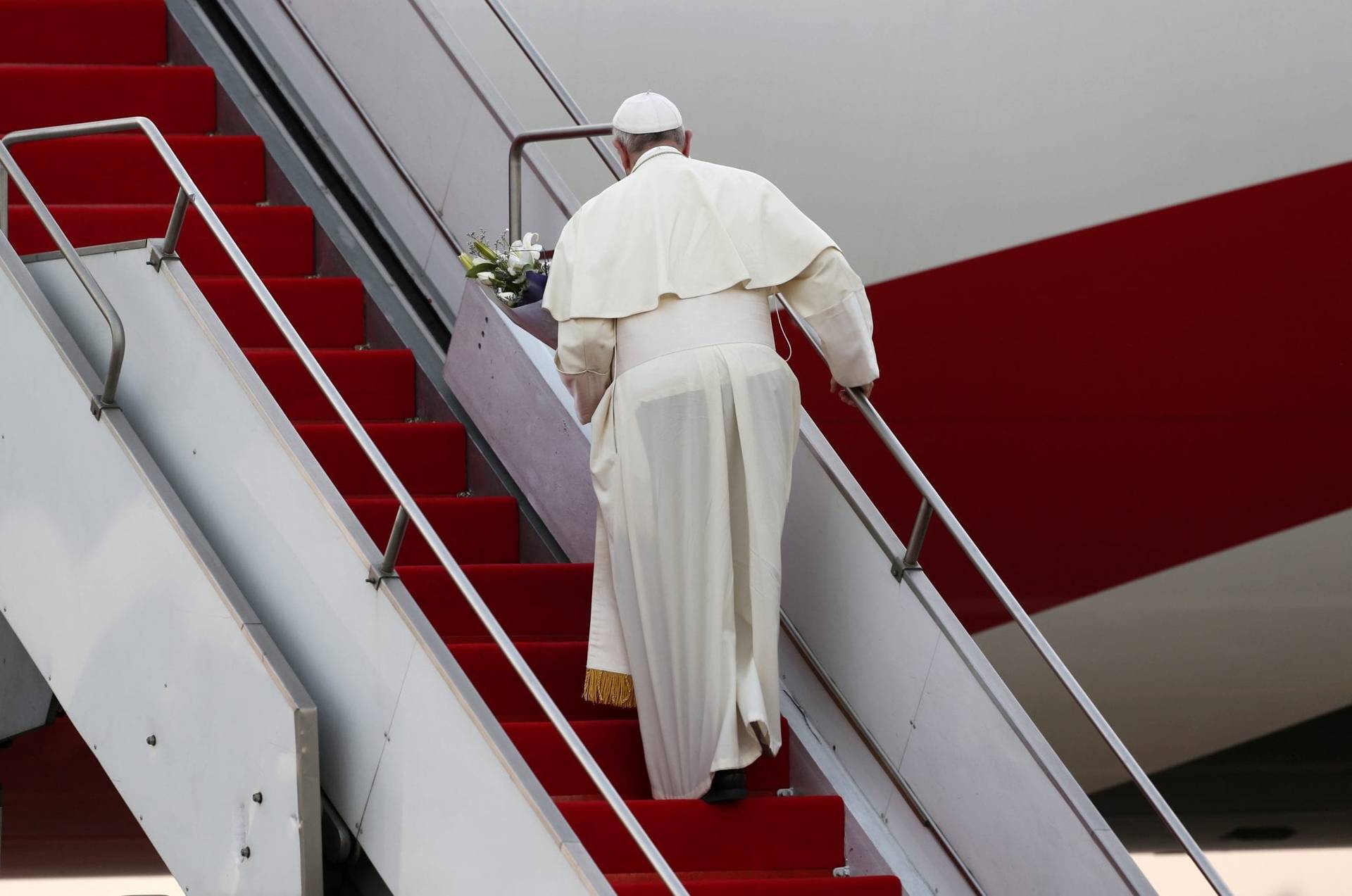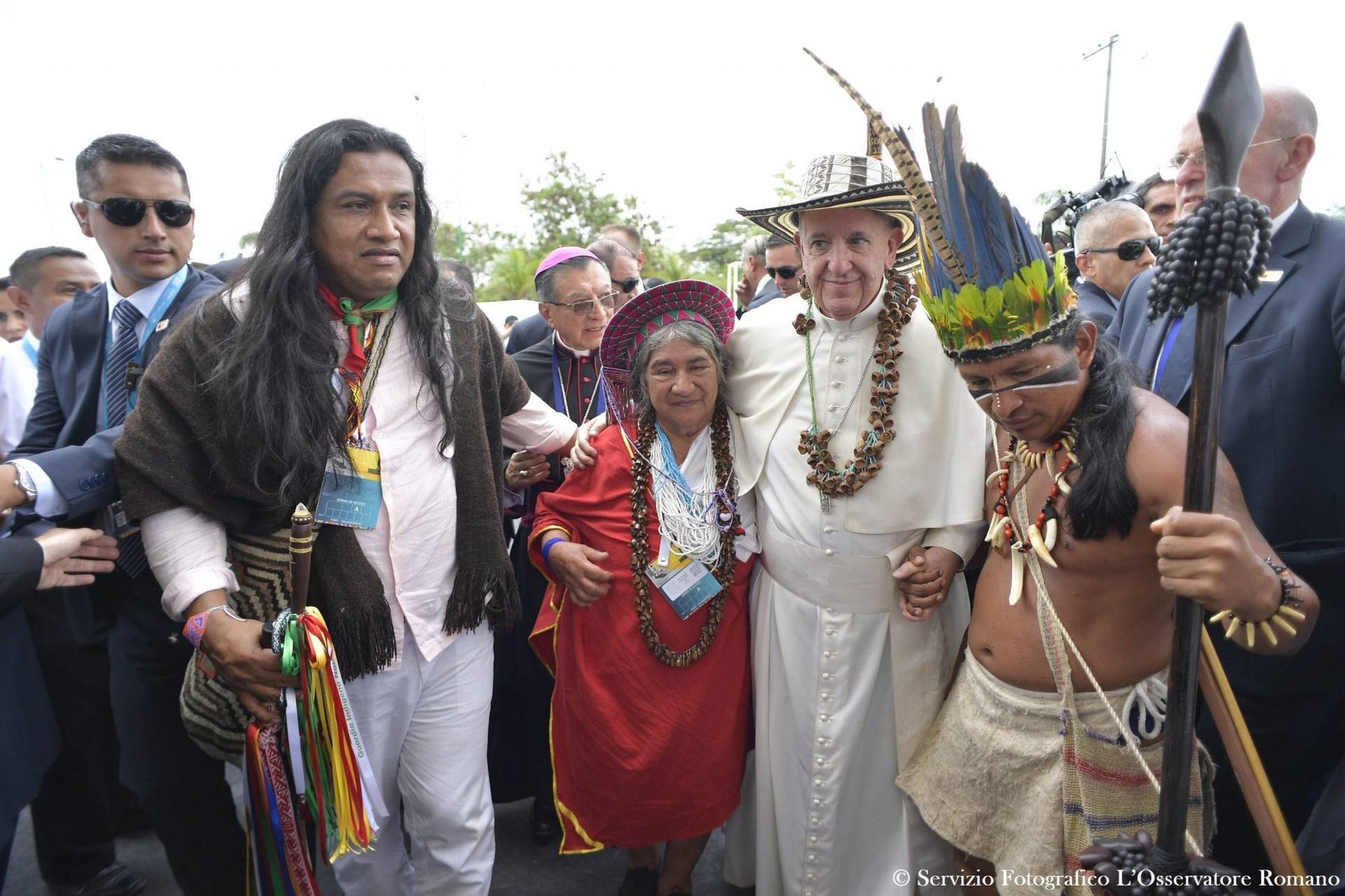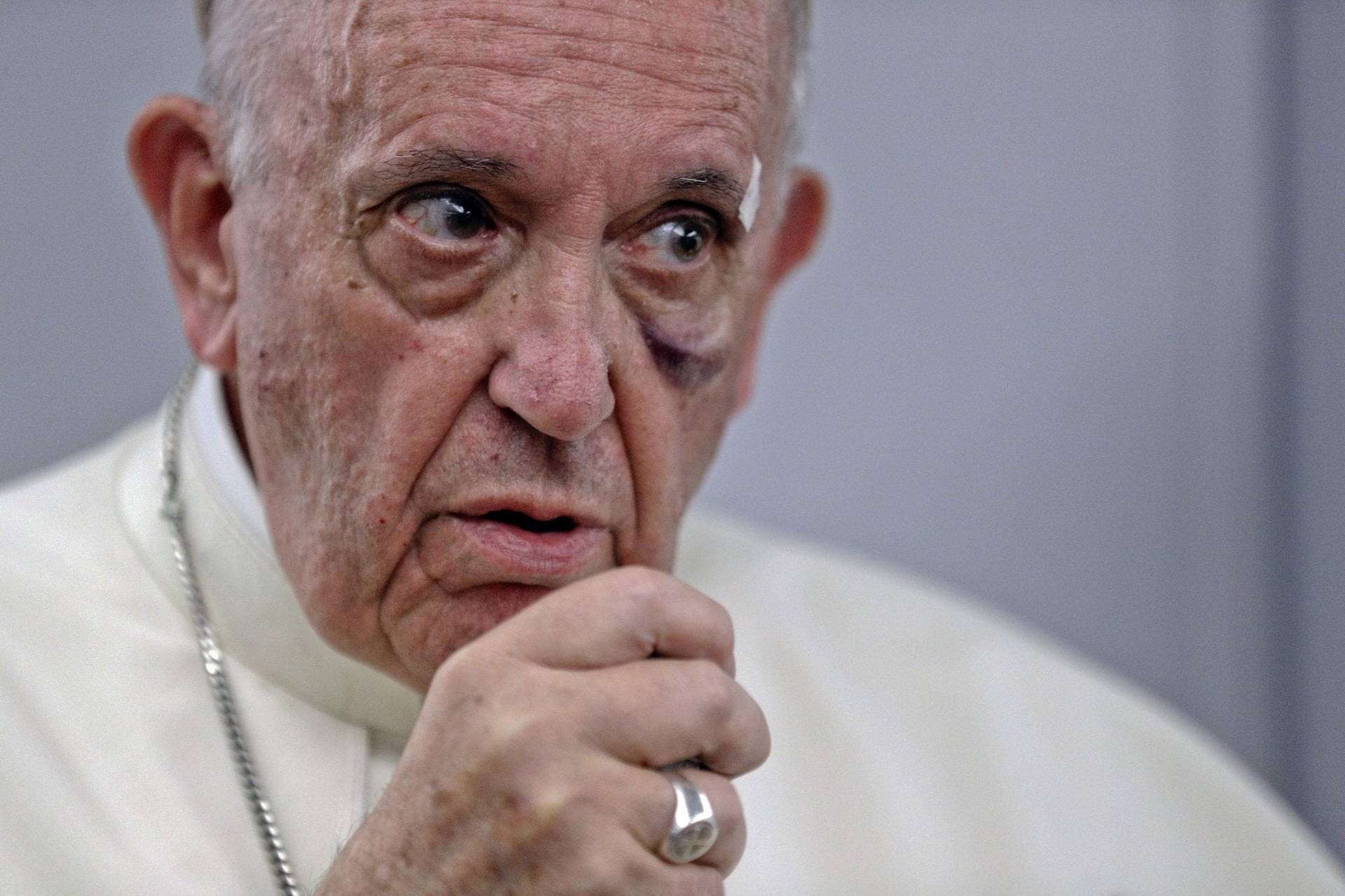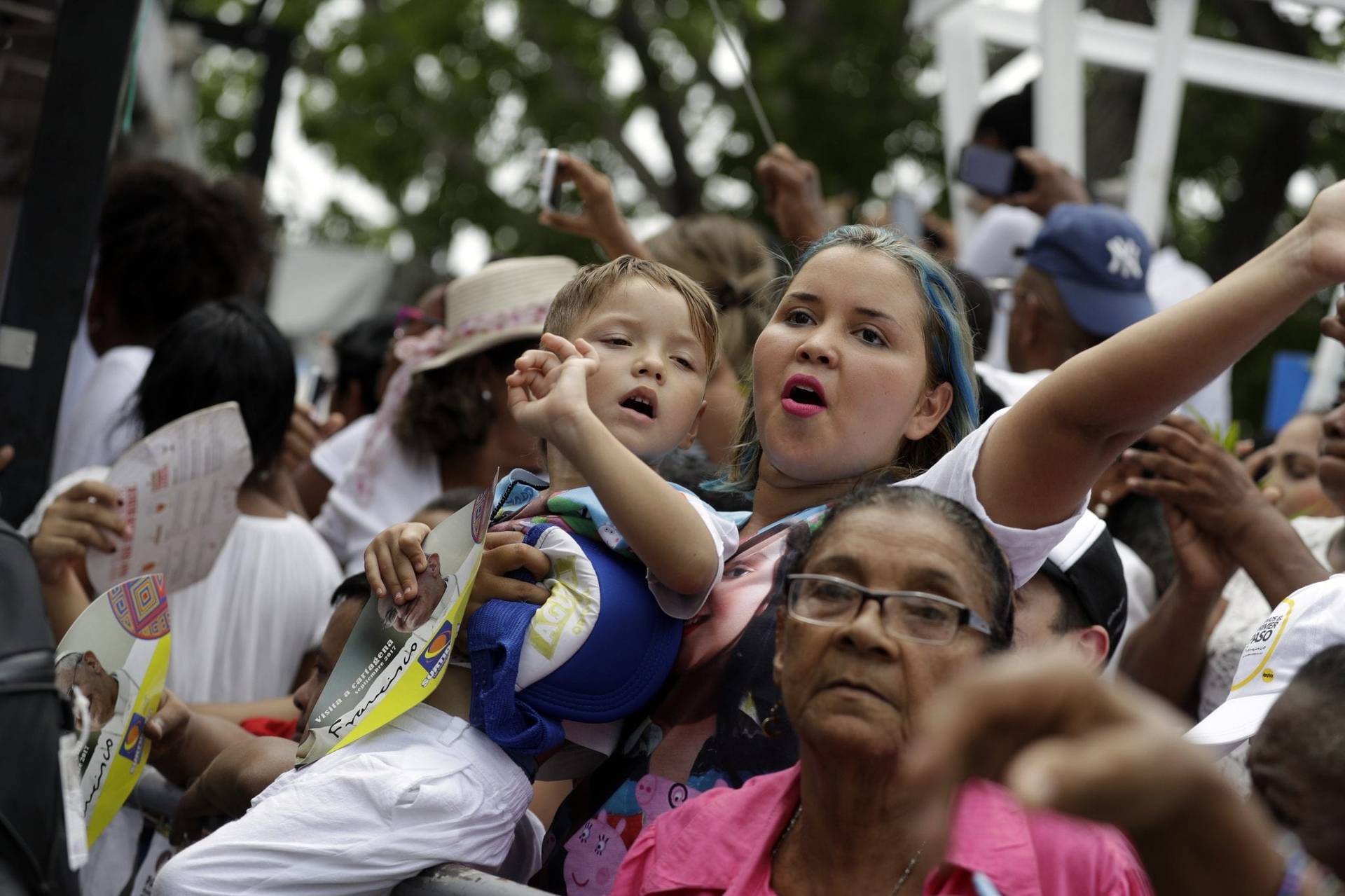MEDELLIN, Colombia – We cannot accept that children are mistreated or denied the right to live their childhood “peacefully and joyfully,” Pope Francis said on Saturday, while visiting a home for orphan children and minors who’ve been affected by Colombia’s violence.
Baby Jesus, the pope said, was also a victim of hatred and persecution, when King Herod, “in his foolishness” decided to kill him. Infant Jesus too “had to run away with his family, to leave his country and his home, in order to escape death.”
Children, Francis said, are Jesus’ favorites, and to see them suffer “wounds our hearts.”
“Jesus, however, never abandons those who suffer, much less you, boys and girls, who are his special ones,” Francis said.
The pope’s words came as a response to the witness shared by Claudia Yesenia García Ramírez, a 13-year old living in the Hogares San José who, when she was 2, lost her parents when they were killed in a massacre in San Carlos, Antioquia. Only 10 children and her aunt survive.
García Ramírez too was hurt, receiving a shot in the abdomen and another one graced her head, forcing her to be hospitalized for a long time. Her aunt found herself taking care of 10 children who were between 2 and 8.
“But God is great,” she said, adding that when her aunt found out about the San José Children’s Homes, she went to the local bishop asking for help. Today, the homes, which help over 1,200 children in Medellín, are their second family.
The young girl told the pope she’s now preparing to become a teacher, to pass on what she’s learned.
“Father Francis: I share with you how thankful I am with God and the Church, because today I am a new and hopeful woman,” she said.
Speaking to her, the pope underlined that, amidst everything that’s happened to her, “God gave you an aunt to watch out for you, a hospital to care for you, and finally a community to welcome you.”
This “home,” Francis said, “is a sign of Jesus’ love for you, and of his desire to be very close to you. He does this through the loving care of all those good people who are with you, who love you and teach you.”
Addressing the religious and lay people who run the San José Children’s Homes, the pope underlined two things for them: to never forget the love that allows them to see Jesus in the smallest and weakest, and “the sacred duty of bringing children to Jesus.”
There are five priests, 20 nuns, and over 90 Catholic laity who work in the eight homes which are part of the San José network in Colombia.
Among the hundreds of children Francis greeted was Santiago del Toro, a 6-year-old who fled the violence from Colombia’s coastal region with his mother and grandmother.
He told journalists that the visit made him feel “hope, joy, emotion and tenderness.”
Del Toro gave the pope a letter which reads: “Francis, I congratulate you for practicing the true religion: loving your neighbor.”
During his foreign trips, Francis often stops at children’s hospitals or orphanages, even when it’s not in the program, as he did in the Central African Republic in November 2015.
In February 2016, during a brief visit to the Federico Gomez pediatric hospital, he received a Valentine card from Ximena Sanchez Torres, a four-year-old girl suffering from leukemia.
He always spends time with the children, making sure he greets them one by one, and sometimes even “playing doctor,” and delivering what he’s dubbed “kindness therapy,” giving the children grandfatherly hugs and listening to their stories when they speak Spanish.
On such occasions in the past, Francis often has been asked why children suffer, and he’s readily confessed that he doesn’t have an answer for this.
For instance, when he was in the Philippines in March 2015, a former homeless girl told Francis that there are many kids who become victims and many terrible things happened to them like drugs or prostitution.
“Why is God allowing such things to happen, even if it is not the fault of the children?” 12-year-old Glyzelle Palomar asked Francis.
“She is the only one who has put a question for which there is no answer, and she wasn’t even able to express it in words, but in tears,” the pope said.














